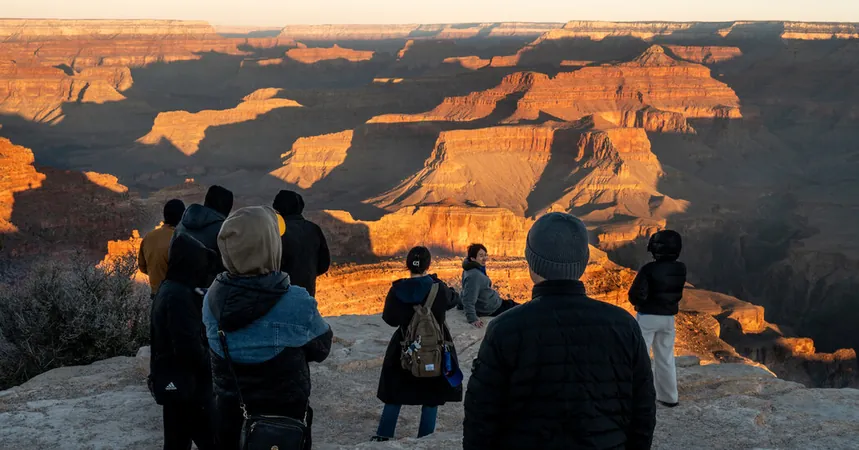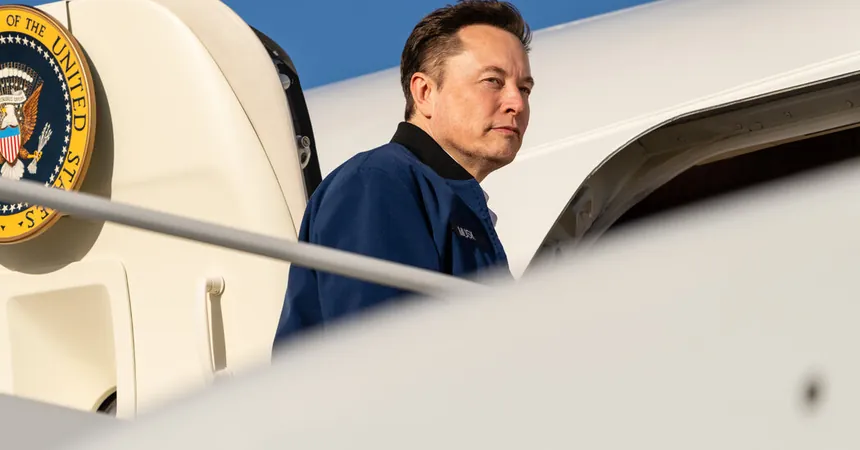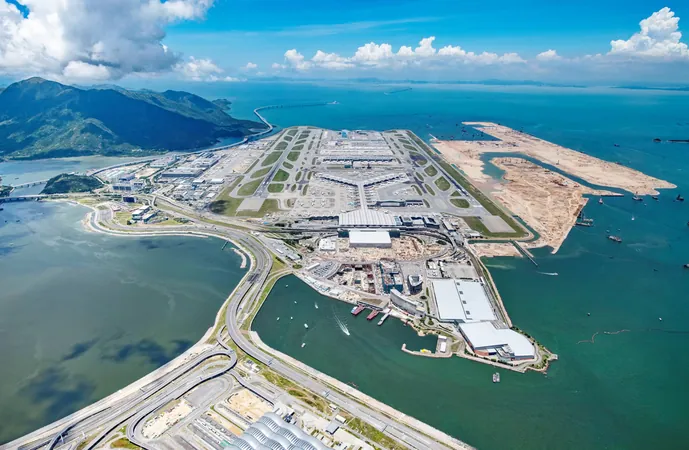
Foreign Travelers Are Rethinking Their Visits to the U.S. Amid Rising Concerns
2025-03-26
Author: Ming
Foreign Travelers Are Rethinking Their Visits to the U.S. Amid Rising Concerns
International travelers are reassessing their plans to visit the United States, with recent actions by the current U.S. administration leading to widespread uncertainty and apprehension. Reports of international tourists being detained at U.S. borders, increased tariffs on trade partners, and strained relations with allies are compelling many potential visitors to think twice about booking flights to America.
A growing sentiment among travelers is that the U.S. has become an unwelcoming and potentially unsafe destination. Travelers like Mallory Henderson, a marketing consultant from London, have already canceled trips due to the current political climate. “It’s a really hostile and scary time, and quite frankly, there are plenty of other inviting and pleasant places I can go to meet my family,” Henderson stated, reflecting a wider anxiety shared by many.
Before the recent political upheavals, the U.S. travel industry was clawing its way back from the pandemic, struggling against a strong U.S. dollar and long visa wait times. According to the U.S. Travel Association, recovery levels for international visitors may not return to pre-pandemic figures until 2026. However, those predictions have now been adjusted, anticipating further declines in travel due to the shifting political landscape.
The research firm Tourism Economics initially predicted a 9% growth in U.S. travel for 2025. However, that forecast has since been recalibrated, now anticipating a 5.1% decrease, equating to an $18 billion reduction in spending. The decline is largely attributed to a boycott from Canadian travelers, which saw a 24% drop in border crossings following tariffs imposed by the U.S. government.
Airlines have noticed the downturn, with companies like Delta and American Airlines lowering their financial projections due to decreased travel activity. United Airlines’ CEO, Scott Kirby, mentioned a significant drop in traffic from Canada, prompting route reductions.
Experts in the travel industry warn that the negative sentiment could persist due to geopolitics, rhetorical tensions, and strict immigration policies. Europe is also experiencing shifts, with a small but growing number of travelers reconsidering their trips to the U.S. Eric Dresin, from the European Travel Agents' and Tour Operators' Associations, emphasized the potentially turbulent times ahead if more countries respond to U.S. policy changes.
In February, statistics revealed a 1% decrease in arrivals from Western Europe compared to a 14% increase in the same month the previous year. Individuals like Christoph Bartel from Germany decided to pivot their travel plans to Canada or Mexico, after being disillusioned by the U.S. administration's environmental policies, particularly relating to national parks that he had intended to visit.
The combination of the rising cost of travel, particularly due to the robust dollar and a tipping culture in the U.S., is driving many foreign visitors to reconsider their destinations. For example, Alan Wilson, a travel agency director, noted that British travelers are increasingly put off by the 20% tipping norm prevalent in the U.S. economy, preferring all-inclusive pricing.
Small businesses in tourism-heavy areas, such as New York and California, are starting to feel the pinch. Local operators like Luke Miller, whose tour company has seen a dramatic number of cancellations post-tariff announcements, express grave concerns about their future. “I just had 20 busloads of seniors cancel their upcoming tours. That’s thousands of dollars in losses for my small business,” Miller lamented.
To counteract the downturn, major cities like New York and California are ramping up marketing efforts. California's tourism agency recently revised spending projections for 2025 down to $160 billion, attributing slower growth to external factors including recent wildfires. Meanwhile, New York officials highlight budget-friendly ways to explore the city — encouraging visitors to discover vibrant neighborhoods outside of Manhattan.
Despite these efforts, business owners like Miller remain skeptical about a quick recovery. Without an upturn in bookings, he indicates the possibility of layoffs looms over his operations. “The reality is that we are being hit the hardest and might not survive,” he concluded.
As the global situation evolves, the future of travel to the U.S. hangs in the balance, pushing tourists to explore alternate destinations while they await clarity from the U.S. government. This growing trend could have lasting implications for the American tourism sector, which has historically relied on international visitors for economic sustenance.



 Brasil (PT)
Brasil (PT)
 Canada (EN)
Canada (EN)
 Chile (ES)
Chile (ES)
 Česko (CS)
Česko (CS)
 대한민국 (KO)
대한민국 (KO)
 España (ES)
España (ES)
 France (FR)
France (FR)
 Hong Kong (EN)
Hong Kong (EN)
 Italia (IT)
Italia (IT)
 日本 (JA)
日本 (JA)
 Magyarország (HU)
Magyarország (HU)
 Norge (NO)
Norge (NO)
 Polska (PL)
Polska (PL)
 Schweiz (DE)
Schweiz (DE)
 Singapore (EN)
Singapore (EN)
 Sverige (SV)
Sverige (SV)
 Suomi (FI)
Suomi (FI)
 Türkiye (TR)
Türkiye (TR)
 الإمارات العربية المتحدة (AR)
الإمارات العربية المتحدة (AR)